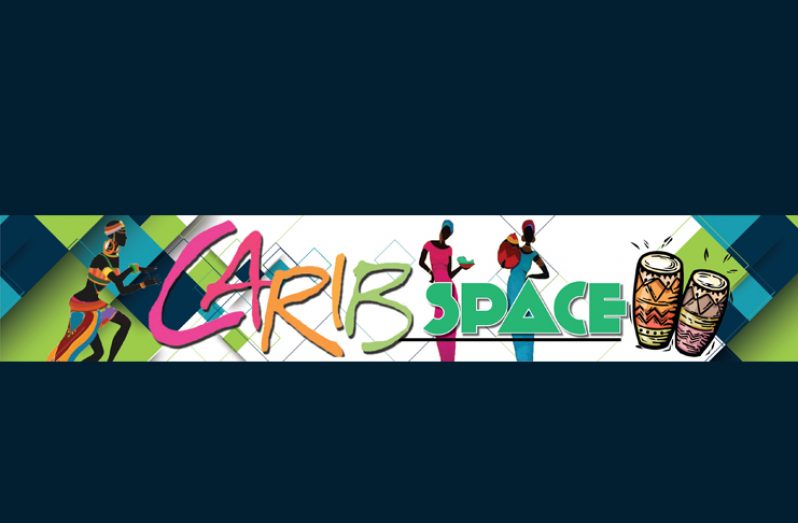Jamaica, a cultural experience
We continue this week with our series on Jamaica and its Government’s efforts to promote and expand its booming tourism industry through various initiatives.
FROM the moment one lands in Jamaica, there is a certain ‘je ne sais quoi’ that pricks at your senses. You can’t quite put your finger on it, but it is there. In fact, at first glance, there are many aspects of the island that are similar to Guyana; from the picturesque mountains that are reminiscent of those that inhabit the Rupununi; to the streets and the houses in some of the Kingston neighbourhoods; to the people who-unless they open their mouths to reveal their unmistakable patois – could very well pass as Guyanese from their racial and physical make up.

But as time goes by and as you are reminded that this is the home of Bob Marley and the place that birthed six genres of music- mento, ska, rocksteady, reggae, dub and dancehall- you realise that the thing about Jamaica is that it is a cultural experience unlike any other you may have encountered. In fact, some aspect of Jamaica’s unique culture is proudly displayed in every nook and cranny on the island; from their signboards demanding that you “Nuh dutty up Jamaica”; to their branded ‘Wata’ selling proudly in every store, every establishment and on every corner. These displays are just a hint that the “Jamaicanness” of the people is at the core of every presentation they make.
TOURISM AND CULTURE
And for a country where tourism is a main attraction and income generator, this cultural pride- which is seen at its best through interactions with their people- becomes even more important in the package that ‘Destination Jamaica’ offers.
“Tourism is not an industry; tourism is a culture…We are a people that relate to each other, we build relationships-we cross borders and we transform lives and people and things. Very few industries can be categorised in that way,” Jamaica’s Tourism Minister Edmund Bartlett explained. He was at the time giving remarks at a media breakfast hosted at the Jewel Grande Montego Bay Resort and Spa in late September. “Tourism is cross-cutting, we embrace everything; we glory in diversity, we embrace differences and we see only people in every step of the way. What a wonderful culture tourism is.”
The importance placed on merging culture and tourism is so acute that Jamaica’s Government is keen on building its human capacity in the tourism industry; a move that will no doubt solidify its people’s love and passion for promoting their country. One such initiative is the introduction of the first ever Hospitality and Tourism Management Programme in 33 high schools in Jamaica. It is a two-year programme which started in September and will give 650 students the chance to become certified and to pursue a career in tourism from an early age. Later in the year, the government will also roll out a pension plan for workers in the tourism industry- a first in the Caribbean.
“To build the country means getting the ideas and the values ingrained in our people from an early age and the creation of the special programme in high schools is a good way of ensuring that students recognise early that there is a career path to be had in tourism; that tourism is not seasonal but it is a pathway to growth and inclusiveness and that it has a place for everybody in the country,” the minister said during an interview with the Pepperpot Magazine. “Once that realisation is there, buttressed by certification, it enables a deeper sense of the importance of tourism as not just an instrument for economic engagement but also a tool for development, and that is the key message that we want to get across.” The m`inister said that the use of a country’s cultural values is the essence of what the destination offers. This, he said, is done through training of the people to become creative and to, in turn, create and provide creative outputs for their craft, art and technical skills.
These sentiments were supported by Tafari Burns, Director of Cultural Economics and Business Initiatives within Jamaica’s Ministry of Culture, Gender, Entertainment and Sport. “Culture is a way of life for Jamaica. We embody our culture, we are proud of our culture and that is very important. Once you exhibit or exercise a sense of pride in what you do … that is a great thing and we infuse our cultural practices in everything that we do,” he said.
Burns explained that his ministry works hand in hand with the Ministry of Tourism, another telltale sign that the two are intertwined. “Tourism is one of our main economic mainstays and the culture is an essential part of it because apart from the sun, sand and sea that you have everywhere, you must add something that makes it unique and that is the Jamaican culture…our way of life –how we treat people… it comes out in how we talk, our music,” he said.
CULTURE AND THE PEOPLE
It is fitting that the saying, ‘When the root is strong, the fruit is sweet’ is attributed to Bob Marley, for these words ring ever true as one observes just how passionate Jamaicans are in showcasing their culture to people.
Every morning, 27-year-old Oshane Morgan wakes up and goes to work at what many would describe as the perfect job: he meets hundreds of interesting people from all over the world; he sings, he dances and he gets to immerse himself in the history of one of the world’s greatest musicians. Oshane is a tour guide at the Bob Marley Museum and has passionately served in this position in the last two years.
Located at 56 Hope Road, Kingston 6, the abode was Bob Marley’s former place of residence up until his death in 1981, and also served as the home to the Tuff Gong reggae record label which was founded by The Wailers in 1970. It is one of the biggest tourist attractions in Jamaica and for obvious reasons: the elements of the legend’s home tell a very personal story of his life, his music and his philosophy. Intricate aspects of Marley’s life are eternally preserved; even the bullet holes left in the wall-in the room now appropriately named ‘The Shot Room’- following a failed assassination attempt on Marley in 1976.

The tour itself is a remarkable experience, and Oshane adds a personal touch with his voice, his moves and most of all, his passion for the job. “What this place does is that it reminds you of your roots and if we notice that so many people of vast backgrounds are coming to see this one place, they must have something in common, so it makes you aware…this place sells soul,” he said. “ When I can come to a place like this that honours what I am talking about it is an honour…it’s about love- that’s what Bob shows us. How do you love? It is not a place of perfect experience for everyone, but you have some people who come and are so touched. They come and show us that we don’t have an excuse because they had a worse life. I learn a lot from here.”
The same passion can be found in every step and every word of Barbara Beckford as she takes tourists through a guided tour of Devon House- a mansion which was built in 1881 and owned by George Steibel, Jamaica’s first black millionaire. An employee there for 36 years, Barbara started out in one of the shops on the site but immediately signed up to be a tour guide when it was announced that the building would be open for tours.

“For me, I enjoy meeting people. I love people and I love to make my country proud…it is your upbringing that has a lot to do with it because if you teach your children well then they will grow up to be mighty men and women of valour and that is what I tell my children… it doesn’t matter if you sweep the yard, you sweep it well…anything you do, do it to the best of your ability and this is what I do at all times. When I do something for my country it is to make my country proud, it is not about me…it is giving of what I know,” Barbara said.
But what is most important to Barbara- and to many Jamaicans- is what Devon House represents; a symbol of hope and a level to which many can aspire. “I look at it as something that our children- our people can look back and see what, as a black race, [ we can achieve],” she said. –“They had the saying that if you are white you are right, if you brown, stick around, but if you black get back or you better attack- so we are always on the attacking side. So I look at this as something for others- I give them motivational talks so it can inspire others and they can have a dream that ‘someday I can achieve’ because most times people put you down and this house stands as a symbol in Jamaica for others to come in and to know that with perseverance we can make it.”
Oshane and Barbara are just two fitting examples of the indelible experience that the perfect mix of passion, culture and tourism can provide for the visitors of a country; and Jamaica’s holistic endeavours to ensure that these elements come to life, are what help to make a visit to the island unforgettable.




.jpg)










